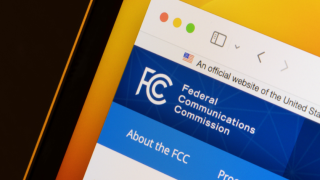All of Japan’s mobile operators abandoned 2G services by April 2012, making it the first country to fully jump to 3G and 4G-only networks.
AT&T has already switched off its 2G network, while rivals including Verizon and T-Mobile have unveiled plans to do the same. Sunrise plans to switch off 2G by the end of next year, while Swisscom and T-Mobile Netherlands have scheduled shut downs by the end of 2020.
Vodafone itself switch off 2G in Australia last year, but CEO of enterprise Erik Brenneis said its 2G network in Europe will live on until at least 2025.
The reason, according to Brenneis, is the need to support legacy machine-to-machine (M2M) and internet of things (IoT) connections that run on 2G.
Vodafone is one of the leading IoT providers globally, according to Gartner, with that segment of the business producing more than €700 million in revenue per year.
Brenneis said that although new IoT technologies such as narrowband IoT can offer similar benefits to 2G connections, there are still a lot of legacy connections that will not be renewed for several years.
“We are encouraging customers to develop new applications on the technology that is best for them,” he explained. “So we also play the role of consultants for some of our customers. If they ask us for help, we offer it. If they want an application where they can upgrade software on the device consistently, we might recommend an alternative to NB-IoT – it is an individual discussion and what we do is offer the solution that is best for the customer.
“Our plan is that we won’t switch off 2G networks in Europe until the year 2025, which is longer than the life time of most of the IoT connections even if you bring them into the market now.”
The news makes Vodafone the second of Europe’s mobile giants to rule ouot a switch off in the next five years, after Telefonica CTO Enrique Blanco said the same at this year’s Mobile World Congress in February.
The reason a lot of operators are currently considering their strategy for 2G networks is because they require more spectrum for 4G and future 5G deployments. Brenneis said this is a discussion carried out a lot across Vodafone’s top management team.
“We discuss freeing up spectrum internally a lot. You can also scale down a 2G network in a gradual way by reserving some bandwidth for legacy applications, and then, we will consult with customers who make new applications on what is the right technology.
“Should they move to 4G for new applications, as there is also cheap hardware available? From us, customers get the same price per megabyte no matter what connection they are on, the cost difference is on the hardware. We also consult each individual on that – it depends on a lot of parameters, such as the lifetime of their solution, or the demand on bandwidth. Customers should not worry about our 2G switching off any time soon.”




